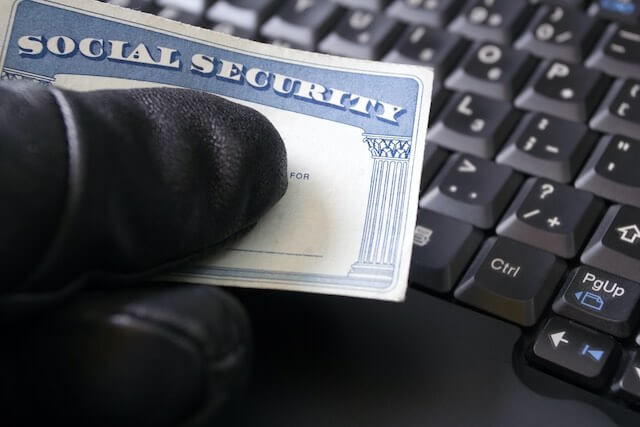The Social Security Inspector General (IG) recently sounded the alarm about a new scam in which thieves are emailing fake documents purporting to come from the Social Security Administration in an effort to get the victims to comply with their demands.
The Social Security Administration Office of the Inspector General (OIG) has received reports of victims who received emails with attached letters and reports that appeared to be from Social Security or Social Security OIG.
The letters may use official letterhead and government “jargon” to convince victims they are legitimate, however, they may also contain misspellings and grammar mistakes which can be a tip off that they are fake.
The IG says that this is the latest variation on what is a widespread and long-running scam involving Social Security.
Scammers make phone calls that are either live calls or robocalls in which the caller claims to be a federal employee who says there is identity theft or another problem with one’s Social Security number, account, or benefits. The fake calls may threaten arrest or other legal action, or may offer to increase benefits, protect assets, or resolve identity theft. They often demand payment via retail gift card, cash, wire transfer, internet currency such as Bitcoin, or pre-paid debit card.
Tips for Staying Vigilant to Scams
The Social Security Administration is reminding everyone that the agency will never do any of the following:
- threaten you with arrest or other legal action unless you immediately pay a fine or fee;
- promise a benefit increase or other assistance in exchange for payment;
- require payment by retail gift card, cash, wire transfer, internet currency, or prepaid debit card; or
- send official letters or reports containing personally identifiable information via email.
If there is ever a problem with your Social Security number or record, in most cases Social Security will mail you a letter. If you do need to submit payments to Social Security, the agency will send a letter with instructions and payment options.
You should never pay a government fee or fine using retail gift cards, cash, internet currency, wire transfers, or pre-paid debit cards. Scammers ask for payment this way because it is very difficult to trace and recover.
What Should You Do?
If you receive a call or email that you believe to be suspicious that claims to be about a problem with your Social Security number or account, hang up or do not respond.
You should also report Social Security scams using SSA’s dedicated online form.
Additional information about how to stay protected from scams and the latest warnings from SSA about recent scams is available at https://oig.ssa.gov/scam.



